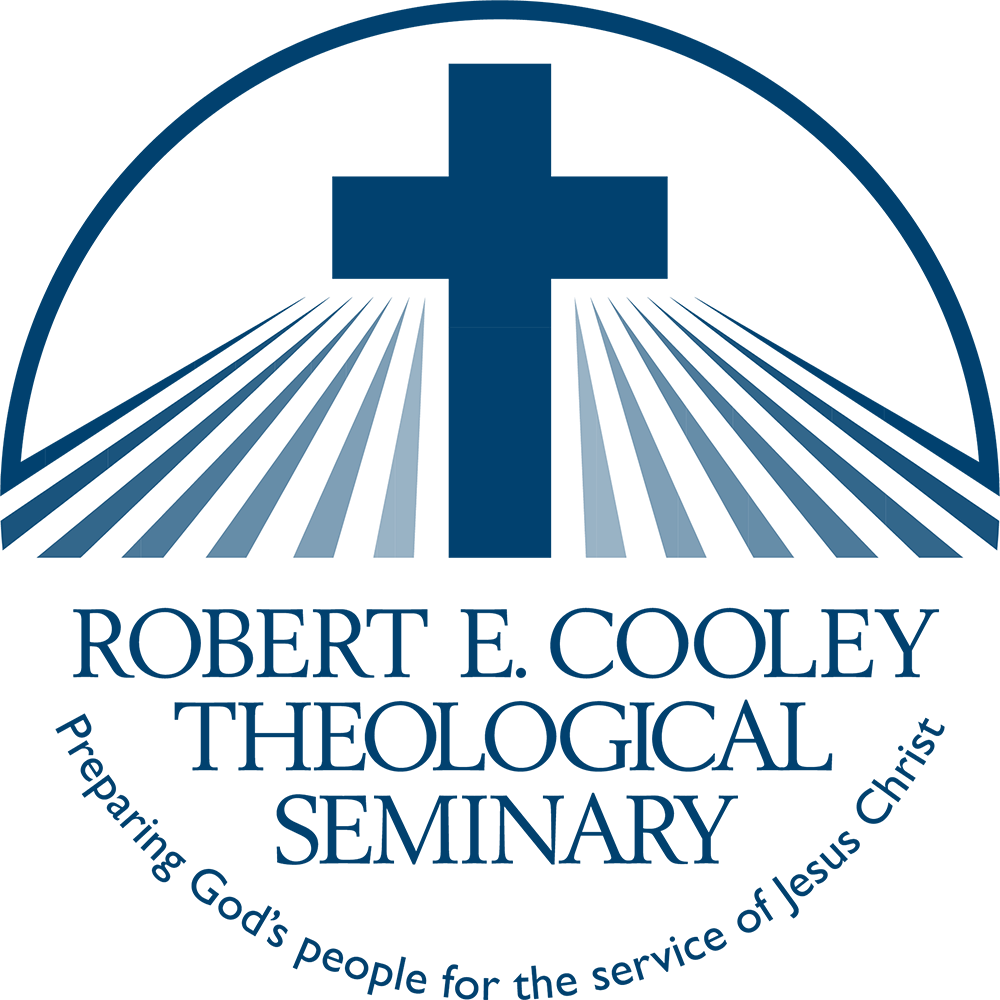Master of Divinity

Institutional Values
The MDiv reflects the following institutional values:
- A high view of the authority of Scripture
- An evangelical theological perspective, committed to the Gospel’s centrality and the Holy Spirit’s transforming power
- A commitment to the Christian mission and the Great Commission
- The resolve to provide excellent and affordable theological education to the Global Church, particularly in those areas threatened by political violence and economic oppression.
The Master of Divinity degree prepares people for religious leadership or service in congregations and other settings as well as for advanced degrees. This degree requires a minimum of 72 credit hours or equivalent units. The aim of the Master of Divinity (MDiv) of Robert E. Cooley Theological Seminary is to prepare such leaders.
Learning Experience
The MDiv is a professional Master’s Degree program that requires completing 72 credit hours, divided into three blocks in the following areas: Biblical Theology (BT), Christian Thought (CT), and Pastoral Theology (PT)
| Required Learning Experiences (3 credit-hours) | ||
|---|---|---|
| Learning Experience | Credit-Hours | Format |
| Starting Well (3) | ||
| Introduction to Ministerial Studies - CT 001 | 3 | Intensive or Online |
| Christian Spirituality (6) | ||
| Spirituality and Discipleship - PT 120 | 3 | Intensive or Online |
| Elective | 3 | Intensive or Online |
| Skillful Biblical Exegesis 15) | ||
| Mission and Leadership in The Old Testament - BT 100 | 3 | Intensive or Online |
| Hebrew for OT Exegesis (Tools) - BT 150 | 3 | Intensive or Online |
| Mission and Leadership in The New Testament - BT 200 | 3 | Intensive or Online |
| Greek for NT Exegesis (Tools) - BT 250 | 3 | Intensive or Online |
| Biblical Interpretation - BT 300 | 3 | Intensive or Online |
| Cultural Exegesis and Gospel Proclamation (6) | ||
| Preaching and Communication - PT 150 | 3 | Intensive or Online |
| Evangelism and Church Growth - PT 175 | 3 | Intensive or Online |
| Theology and Worship (9) | ||
| Christian Thought Survey - CT 100 | 3 | Intensive or Online |
| Theology of the Christian Mission - CT 150 | 3 | Intensive or Online |
| Pastoral Theology Survey - PT 100 | 3 | Intensive or Online |
| Christian Tradition (6) | ||
| History of the Church in Mission 1 - CT 201 | 3 | Intensive or Online |
| History of the Church in Mission 2 - CT 202 | 3 | Intensive or Online |
| Christian Ethics (6) | ||
| Ethics for Life and Ministry - CT 300 | 3 | Intensive or Online |
| Missional Leadership - PT 110 | 3 | Intensive or Online |
| Collaboration and Care (6) | ||
| Pastoral Care and Counseling - PT 300 | 3 | Intensive or Online |
| Church Administration - PT 350 3 Intensive or Online | 3 | Intensive or Online |
| Reflection in Community (6) | ||
| Understanding Culture - CT 400 | 3 | Intensive or Online |
| Intercultural Ministry - PT400 | 3 | Intensive or Online |
| Contextual Project (6) Design, implementation, and evaluation of a ministry initiative that engages both the Church and the community at-large | ||
| Mentored Life Although there are no learning experiences solely dedicated to mentoring, this subject will be addressed in several learning experiences, such as Introduction to Ministerial Studies - CT 001 (Starting Well), Missional Leadership - PT 110, Spirituality and Discipleship - PT 120, and Mission and Ministry - PT 500. It will also be embedded in the program, as every student will be required to have three mentors (i.e., Faculty, Vocational and Personal mentors). | ||
| Continuing Well (3) | ||
| Mission and Ministry - PT 500 (Capstone) | 3 | Intensive or Online |
Areas of Focus
Explanation of Kairos’ Areas of Focus
The learning experiences offered in the MDiv must address the following areas required by Kairos, our educational partner:
- Starting Well (3 Credit Hours): Focuses on journey preparation and mentor team development
- Christian Spirituality (6 Credit Hours): Focuses on spiritual formation, life in Christ, and the fruit of the Spirit
- Skillful Biblical Exegesis (6 Credit Hours): Focuses on Bible interpretation of the Bible
- Cultural Exegesis and Gospel Proclamation (6 Credit Hours): Focuses on the Christian mission and Gospel communication
- Theology and Worship (6 Credit Hours): Focuses on God, Christ, humanity, creation, Spirit, church, and global theology
- Christian Tradition (6 Credit Hours): Focuses on early church history, the Reformation, modern church history, and historical theology
- Christian Ethics (6 Credit Hours): Focuses on ethical reasoning, Christian ethical reflection, and Christian leadership
- Collaboration and Care (6 Credit Hours): Focuses on counseling, pastoral care, and organizational systems
- Reflection in Community I (6 Credit Hours): Focuses on high-level integration, diversity of perspectives, and empathetic listening
- Contextual Project (6 Credit Hours): Focuses on ethnohermeneutics, project research, project/thesis, theology in context, and cross-cultural immersion
- Mentored Life (6 Credit Hours): Focuses on Christian discipleship, walking with fellow Christians, and vocational resilience
- Continuing Well (3 Credit Hours): Focuses on program reflection, building a community of support, and lifelong learning preparation.
Explanation of ATS’ Areas of Focus
The learning experiences offered in the MDiv must address the following areas required by the Association of Theological Schools (ATS), the accrediting agency:
- Religious Heritage: Focuses on the understanding of Scripture, the theological traditions and history of the school’s faith community, and the broader heritage of other relevant religious traditions. (Mission and Leadership in The Old Testament – BT 100, Mission and Leadership in The New Testament – BT 200, Biblical Interpretation – BT 300, Christian Thought Survey – CT 100, History of the Church in Mission 1 – CT 201, History of the Church in Mission 2 – CT 202)
- Cultural Context: Focuses on cultural and social issues, global awareness, and engagement, and the multifaith and multicultural nature of the societies in which students may serve. (Theology of the Christian Mission – CT 150, Pastoral Theology Survey – PT 100, Ethics for Life and Ministry – PT 300, Pastoral Care and Counseling – PT 300, Understanding Culture – CT 400, Intercultural Ministry – PT400)
- Personal and Spiritual Formation: Focuses on the development of personal faith, professional ethics, emotional maturity, moral integrity, and spirituality. (Introduction to Ministerial Studies – CT 001, Spirituality and Discipleship – PT 120, Mission, and Ministry – PT 500)
- Religious and Public Leadership: Focuses on cultivating capacities for leadership in ecclesial or denominational and public contexts and reflecting on leadership practices. (Preaching and Communication – PT 150, Evangelism and Church Growth – PT 175, Missional Leadership – PT 110)
Suggested Pastoral Theology Learning Experiences
As stated above, the elective learning experiences will focus on the student’s ministerial context. Students will be encouraged to design their own contextual projects, addressing the particular needs of their faith communities. However, our school will offer learning experiences addressing different theological issues.
Some of the suggested topics are:
- Biblical Preaching
- OT Theology – The Pentateuch, History and Poetry, Prophecy and Restoration
- NT Theology – The Gospels, Acts and Paul’s Epistles, General Epistles and Revelation
- Administration of Non-Profit Organizations and Personal Finance
- Marriage and Family Therapy
- Evangelism and Apologetics
- Church Planting
- Church Revitalization
- Conflict Management
- Ministry with Youth
- Ministry with Children
- Women in Ministry and Theology
Educational Philosophy
The vision and mission statements of the seminary, both focused on spiritual formation and pastoral ministry, drive our educational philosophy. Our focus is to prepare God’s people for the service of Jesus Christ. The seminary achieves this goal with a two–pronged strategy: Competency-Based Theological Education (CBTE) and Mentored Teamwork.
CBTE complements the broad heading of Outcome-Based Education (OBE). The OBE movement began in the 1970s and grew out of a desire to build educational programs that equipped students practically and pragmatically to achieve measurable learning outcomes described in the degree program. This was an important development in the history of educational design for it signaled the birth of an entire area of research and study focused on assessing the outcomes of learning. Rather than if learning occurred by default through courses, CBTE requires the professor and student to think critically about what the educational program is attempting to accomplish. CBTE has the potential to develop a form of education that values the role of relationships and mentoring, both with God and with each other, which accomplishes true ministry training. At its core, CBTE is a philosophy of education that invites participants to re-evaluate current assumptions about learning and to embrace the development of learners as a truly organic, spirit-filled process of discipleship.
Mentored teamwork is one of the most important CBTE principles. RECTS requires each learner to be embedded in a mentor team comprised of the student, a faculty mentor, a vocational mentor, and a personal mentor. Mentor teams are a key component of the educational experience at RECTS. Each mentor team shapes and evaluates the learner’s experience in their educational journey of discipleship. Mentoring teamwork requires a collaborative commitment to mission and ministry where each member of the team is engaged in a journey of discipleship while learning together.
Apply Today!
Ready to get started? Begin your application and we’ll follow up to help walk you through the rest of the process.
Looking for additional information on any of our programs? We’re here to help!

